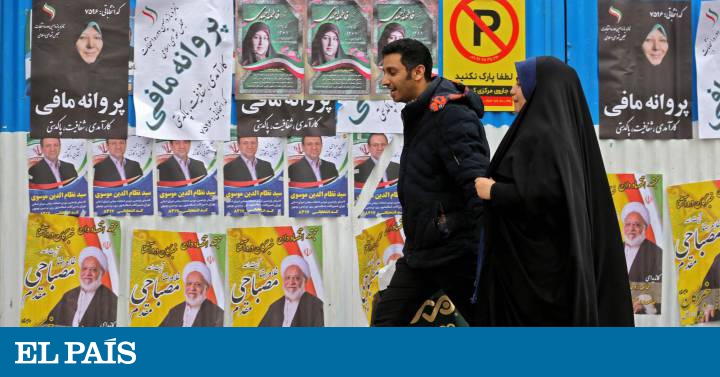The importance of the legislative elections that are being held in Iran today is not, as would happen in any democracy, about the outcome. These are elections where the candidates have been duly filtered by the regime and in which the reformist option has been virtually eliminated, so that the conservative victory is assured. Therefore, the battle has moved to the participation of the electorate, since the act of abstaining has become a loophole within the system with which the population can show their discontent.
Since the dethronement of Sha in 1979, Iran has maintained a peculiar system that officially combines republican forms with a principle of Islamic government by which there is a supreme authority in the religious and political spheres. Ayatollah Ali Khamenei has held this position since 1989. The regime has always avoided the frictions and contradictions of this double systematic nature appealing to the legitimacy granted by the polls. Hence, participation has become an important indicator of adherence or disaffection towards the Islamic system. Although the elected Parliament may theoretically censor the members of the Executive, in practice it normally acts as a transmission belt. For today's elections, the most conservative wing of the regime has imposed the majority of the candidates, but it must still expect the support, or not, of a population where disaffection grows.
In recent years, discontent in Iranian society has been increasing for various reasons, among which there is no less desire to modernize a society with a very young population pyramid with 83 million inhabitants and a fifth in the metropolitan area of Tehran This malaise has crystallized from time to time in important popular protests such as the Green Tide that in 2009 demanded political reforms and greater freedoms or, more recently, last November when a rise in fuel generated a wave of demonstrations against the economic situation, but also Against the theocratic system.
The elections also occur in a context of weakening the socially less rigid sectors, whose strategy of greater openness to the West has been torpedoed by Donald Trump's decision to unilaterally abandon the 2015 Nuclear Agreement two years ago and reinstate harsh sanctions economic against Iran. The assassination by drones of the USA of general Qasem Soleimani has also served so that the ultraconservative sectors consolidate his immobilistic speech. It is therefore not the choice of the 290 seats in Parliament, but the support at the polls that they receive the most reliable thermometer of the situation in Iran.
You can follow THE COUNTRY Opinion on Facebook, Twitter or subscribe here to the Newsletter.

